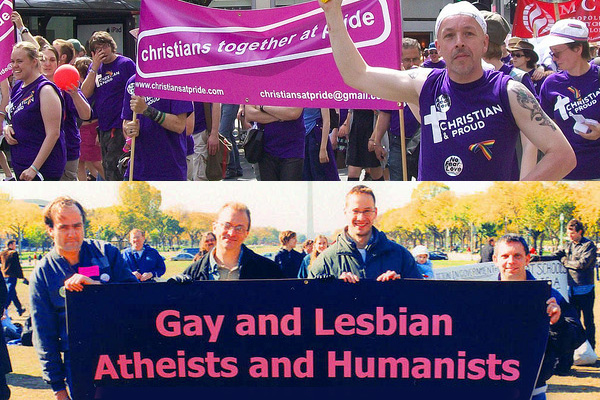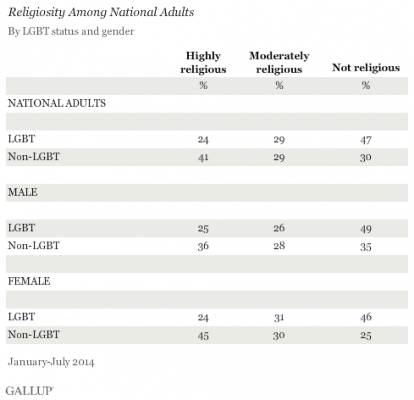
LGBT populations are less likely to be religious
- By Emily Murdoch --
- 13 Aug 2014 --

LGBT populations are less likely to be religious compared to their straight counterparts.
The international Lesbian, Gay, Bisexual, Transgender (LGBT) community has often struggled at reconciling with religious groups, especially ones who believe the LGBT community’s sexuality is contradictory to their beliefs. Therefore many people have assumed that the LGBT community is less religious than its heterosexual counterparts. New research just released by Gallup seems to suggest that stereotype may actually have some truth.

Looking closely at the data, is it quite fascinating. The study discovered that LGBT adults that live within the United States of America are much more likely to identify as non-religious than those people that do not consider themselves to be LGBT within the United States of America. In fact, 47% of LGBT adults would not consider themselves to belong to a religion, whilst in comparison you can see that only 30% of non-LGBT adults consider themselves nonreligious. But strangely, the closer you look, the bigger the gaps seem to be. For example, around 46% of LGBT women are unreligious, while only around 25% of LBGT men are not religious. On a whole, 24% of the American LGBT community consider themselves to be highly religious.
The reasons for this lack of interest in religion from the LGBT community has a very easily found source; within many religions, LGBT practice is forbidden. Many members of congregations that have revealed their sexuality have been made to feel very uncomfortable, or have even been asked to leave the community. Although religious groups have become more tolerant in the last few years, acceptance is difficult for those that are more conservative in their religious beliefs, and that means there is an inescapable difference between those with conservative religious beliefs, and those that define as LGBT.
Another theory for the reduced involvement in religion is that LGBT people are more likely to live in urban areas, where religious practice is normally low across the board. Additionally, the LGBT community tends to skew towards a younger demographic, which, regardless of sexual identity, is less religious than their older counterparts.




















